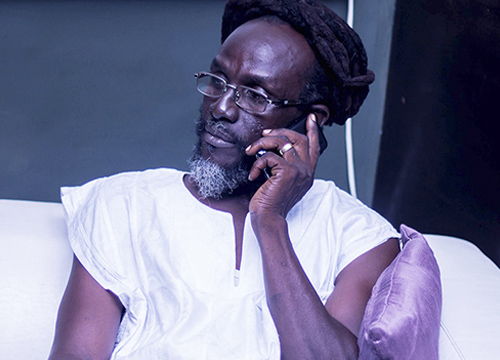Ghanaian broadcaster Daddy Bosco disagrees with the agenda to place highlife as the only music genre to represent Ghana internationally.
According to the Director of Communications and Special Projects at the Musicians Union of Ghana (MUSIGA), the "fixation on only highlife for me is very limiting.”
He made the statement on Joy FM’s Showbiz A-Z while responding for to a question on the right genre to represent Ghana on the international level.
Bosco cited America as a country that has many genres like jazz, RnB, funk, country among others. He said even highlife has western influences, a reason musicians should be allowed to experiment with rhythms.
“As a national we need to appreciate that it is sort of generational. So the kids today sing more with hiplife and the derivatives like Afrobeats. The other day I was hearing someone say Amapiano highlife,” he told the host Kwame Dadzie.
“The point I am making is that as a people we will not be represented by only highlife. What we need to do is to open up to our creativity. Because the conversation shows what we call highlife today is a fusion of African rhythms and western rhythms, played with western instruments,” Bosco added.
The dominance of Afrobeats on the global music scene has ignited the conversation about what can be done in Ghana to achieve a similar feat.
For many people, highlife, a music genre of Ghanaian origin is the only true identity of Ghana’s music industry.
In the meantime, highlife is being considered by the United Nations Educational, Scientific and Cultural Organisation (UNESCO) to be listed as intangible heritage. If this goes through, Ghanaian will duly be credited as the owners of the music genre.
UNESCO defines ‘Intangible cultural heritage’ refers to the practices, representations, expressions, knowledge and skills – as well as the instruments, objects, artefacts and cultural spaces associated – that communities, groups and, in some cases, individuals recognize as part of their cultural heritage.
Latest Stories
-
The presidential feud that even death couldn’t end
53 minutes -
Hundreds of Voice of America reporters fired as Trump guts outlet
1 hour -
Gov’t directs NACOC to operationalise Substance Use Disorder Rehabilitation Fund
1 hour -
TDC Board tours project sites, reviews progress and future development plans
1 hour -
Navrongo traditional leaders urge Mahama to intervene in looming chieftaincy crisis
2 hours -
Iran–Israel war: Dissecting Netanyahu’s political calculus
2 hours -
When Algeria came to Iran’s aid
2 hours -
‘Retired but not tired’ – Stakeholders celebrate COP Samuel Alfred Winful’s distinguished service
2 hours -
GWCL official dismisses claims of sabotage over uncommissioned Broto Water Project
2 hours -
Pakistan to nominate Trump for Nobel Peace Prize
4 hours -
Suicide bombing at Damascus church kills 22, Syrian authorities say
4 hours -
Bellingham scores as 10-man Real Madrid beat Pachuca
4 hours -
Three fans die in Algeria football stadium fall
4 hours -
South African engineers freed after two years in Equatorial Guinea jail
4 hours -
FedEx founder and former boss Fred Smith dies aged 80
5 hours

